Are you looking to streamline your transportation service procurement process? Navigating the complexities of choosing the right provider can feel overwhelming, but it doesn't have to be! With the right approach, you can ensure that your logistics needs are met efficiently and cost-effectively. Keep reading to discover essential tips and insights to make your procurement journey smoother and more successful.
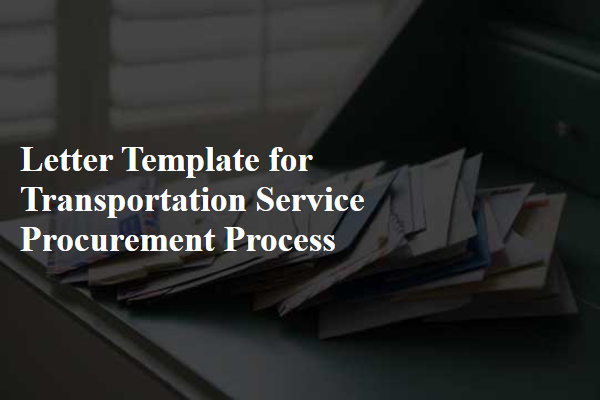
Header Information (Company Name, Address, Date)
The Transportation Service Procurement process necessitates clear communication regarding essential details. The header information should prominently display the company's name (e.g., Global Logistics Solutions), followed by the complete address including street name, city, state, and zip code (e.g., 123 Logistics Way, Freight City, NY 10001). The date of the letter should also be included, ideally formatted as Month Day, Year (e.g., October 5, 2023). This format ensures that all parties involved in the procurement are aware of the initial communication date, fostering organized documentation throughout the procurement process.
Introduction and Purpose of the Letter
In the context of the transportation service procurement process, a detailed introduction outlines the objectives of soliciting bids from qualified transportation providers. This request seeks to establish reliable logistics services for [specific project or company name] which is committed to enhancing operational efficiency across [specific geographic area or route, e.g., New York City]. The proposal aims to ensure timely delivery of goods while adhering to safety regulations and environmental standards. The procurement process is designed to foster competitive pricing and innovative transportation solutions, enabling [company or project name] to optimize its supply chain management and improve overall service quality.
Detailed Service Requirements and Specifications
Transportation service procurement involves comprehensive documentation outlining specific service requirements and specifications to ensure optimal performance. Essential details include the type of transportation service (e.g., freight, passenger, logistics management), capacity requirements (number of vehicles, weight limits), geographic coverage (specific regions or cities like New York, Los Angeles), service frequency (daily, weekly), and delivery timeframes (e.g., 24-hour turnaround). Additional specifications might encompass vehicle type (e.g., refrigerated trucks, standard cargo vans), licensing and insurance requirements, compliance with safety regulations (Department of Transportation standards), and payment terms (e.g., invoicing schedule, payment methods). Quality assurance measures (performance metrics, customer feedback processes) and contingency plans (emergency protocols, backup service options) are vital for maintaining service reliability and addressing potential disruptions.
Submission Guidelines and Deadline Information
Submission guidelines for the transportation service procurement process specify clear requirements for bidders to ensure a streamlined evaluation. Bidders must submit their proposals in accordance with the predetermined format, including a detailed outline of service capabilities, pricing structures, and compliance with regulatory standards relevant to the industry, such as Federal Motor Carrier Safety Administration (FMCSA) regulations for interstate commerce. Submission must occur before the deadline on April 15, 2024, by 5 PM EST, at the designated procurement office located at 123 Commerce Blvd, Suite 200, Cityville, State. Late submissions will not be considered. Additionally, all documents must be provided in a PDF format to facilitate the review process, ensuring ease of access and consistency across submissions.
Contact Information and Follow-up Procedures
The transportation service procurement process involves a systematic approach to sourcing and engaging transportation providers for logistical needs. Essential contact information includes the name of the procurement officer, their phone number, and email address, ensuring clear communication. Follow-up procedures must be defined, typically involving timely responses within 48 hours after initial proposals are received. Stakeholders should receive updates regarding proposal evaluations and decisions, with a structured timeline for each phase, such as pre-bid meetings or site visits, to maintain transparency. Accurate documentation is essential to keep all parties informed about contractual obligations, delivery timelines, and compliance with industry regulations.

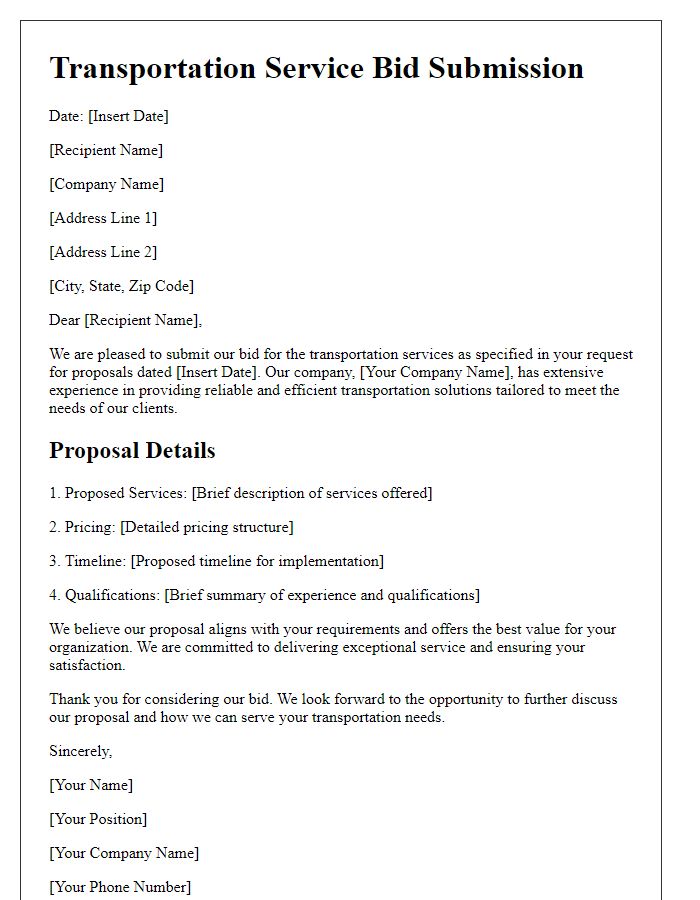
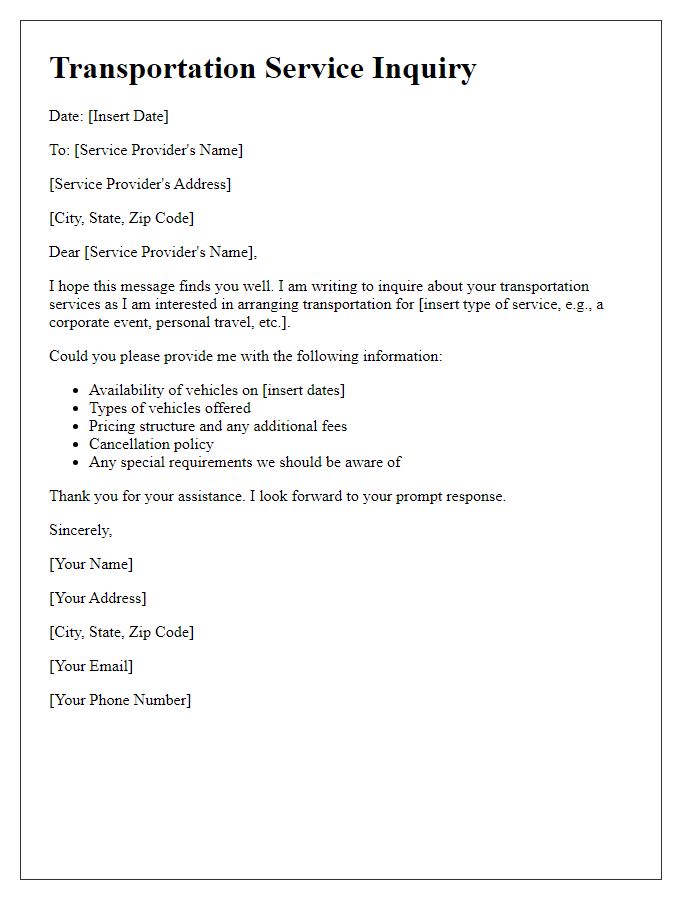
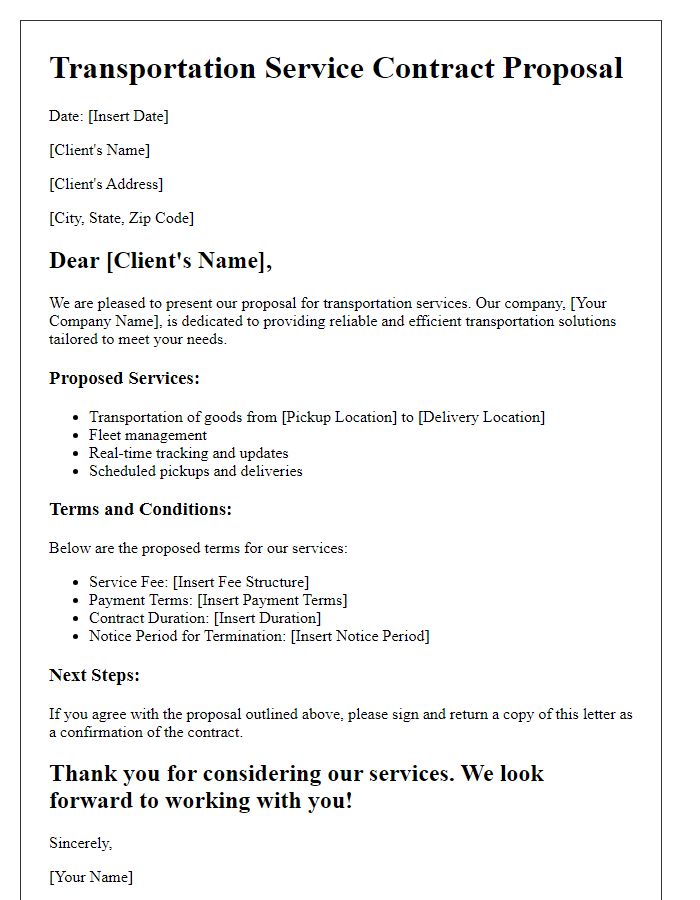
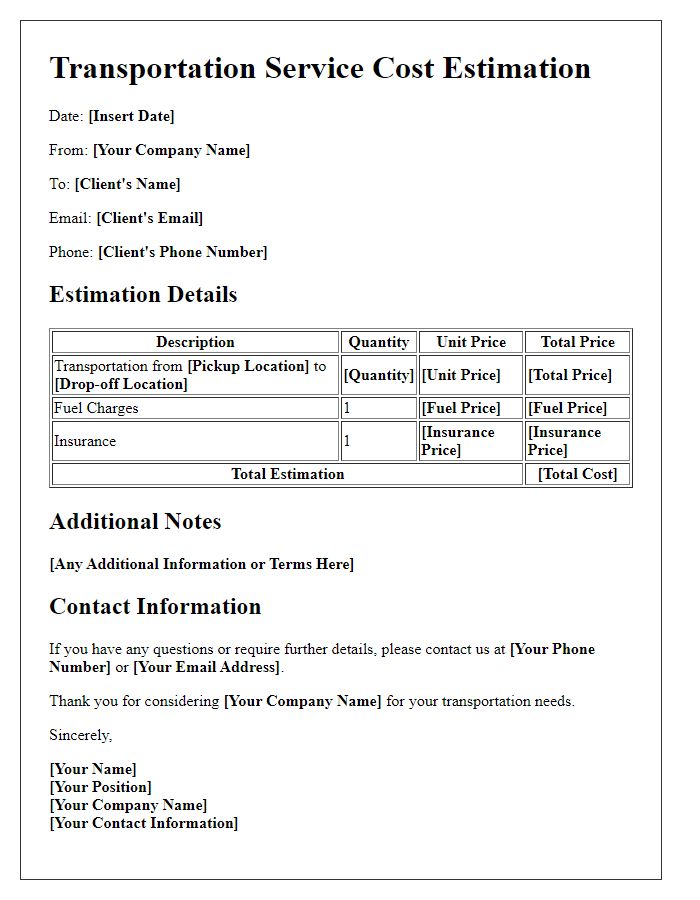
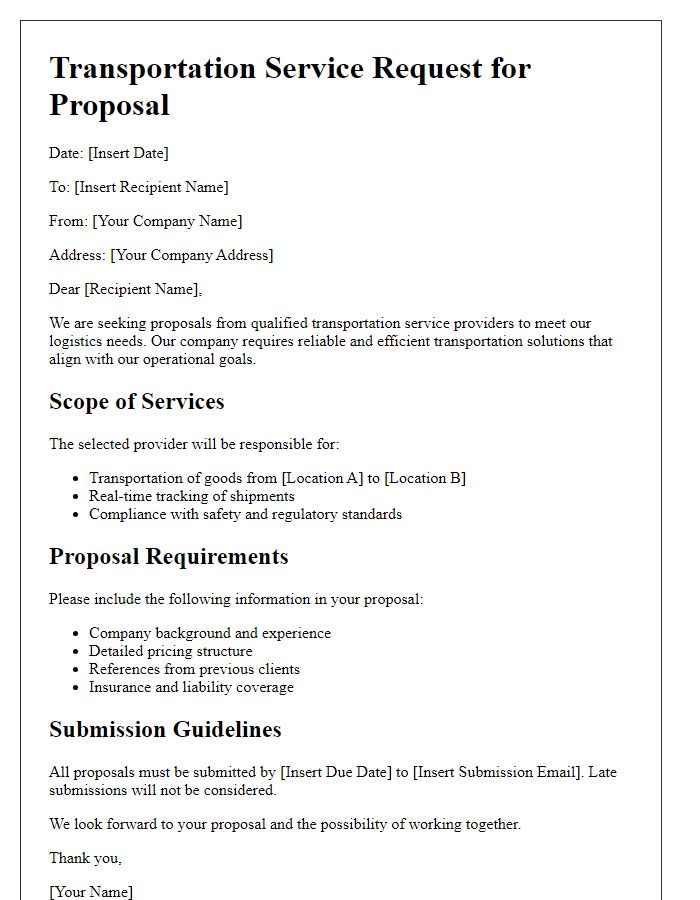
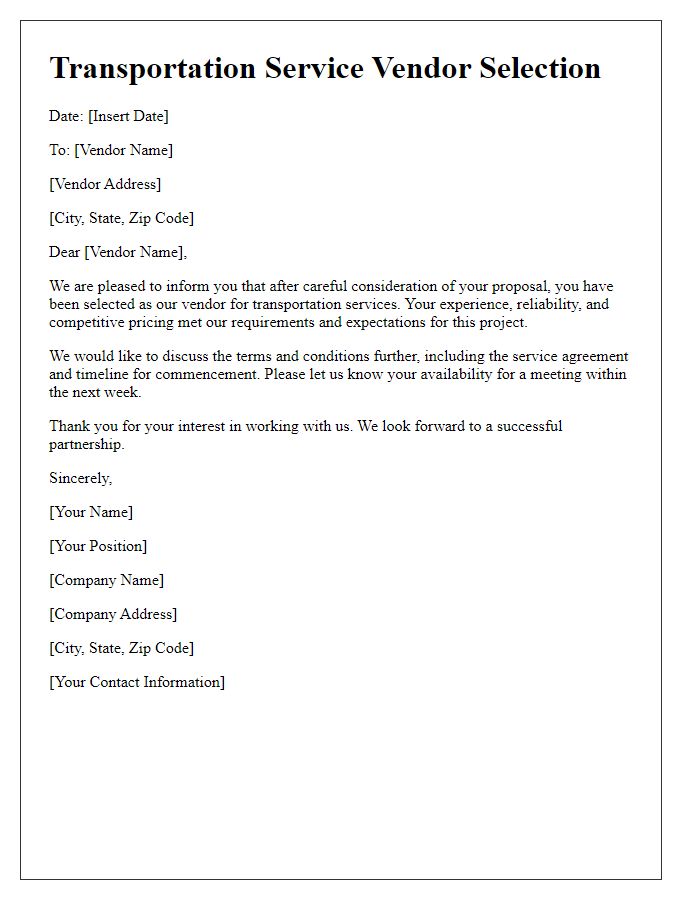
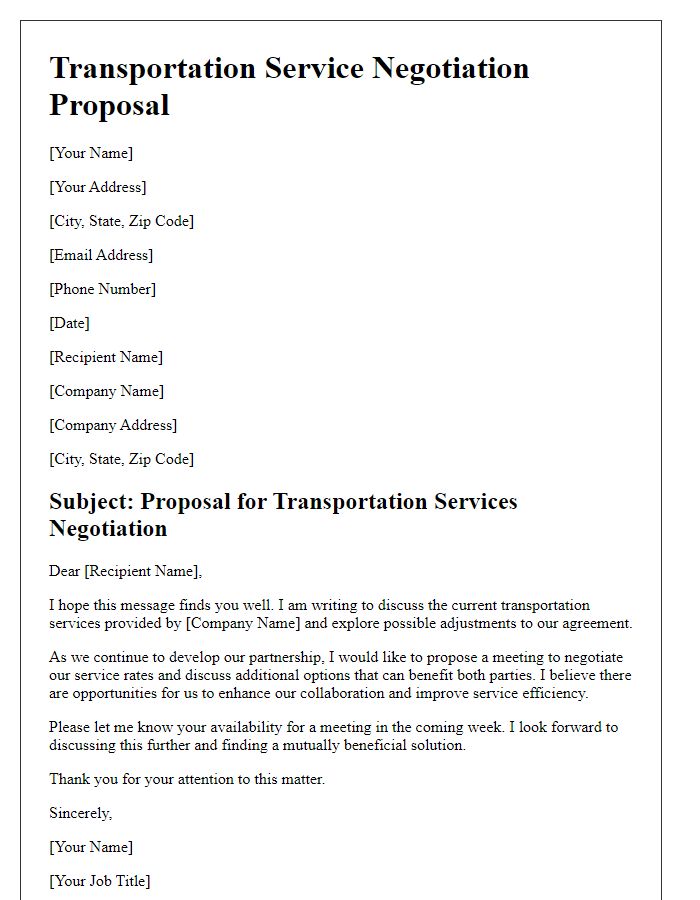
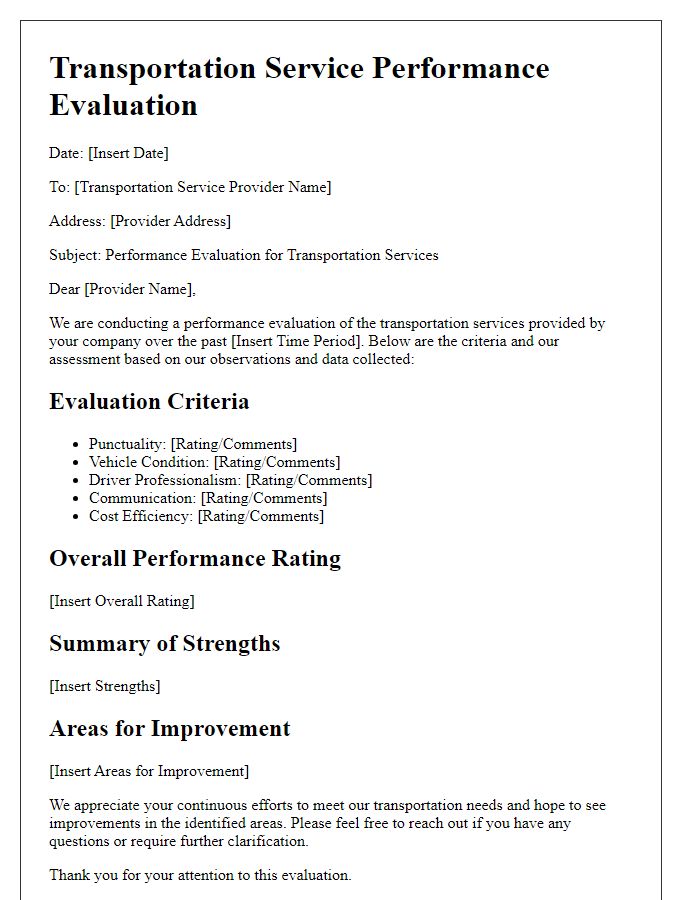
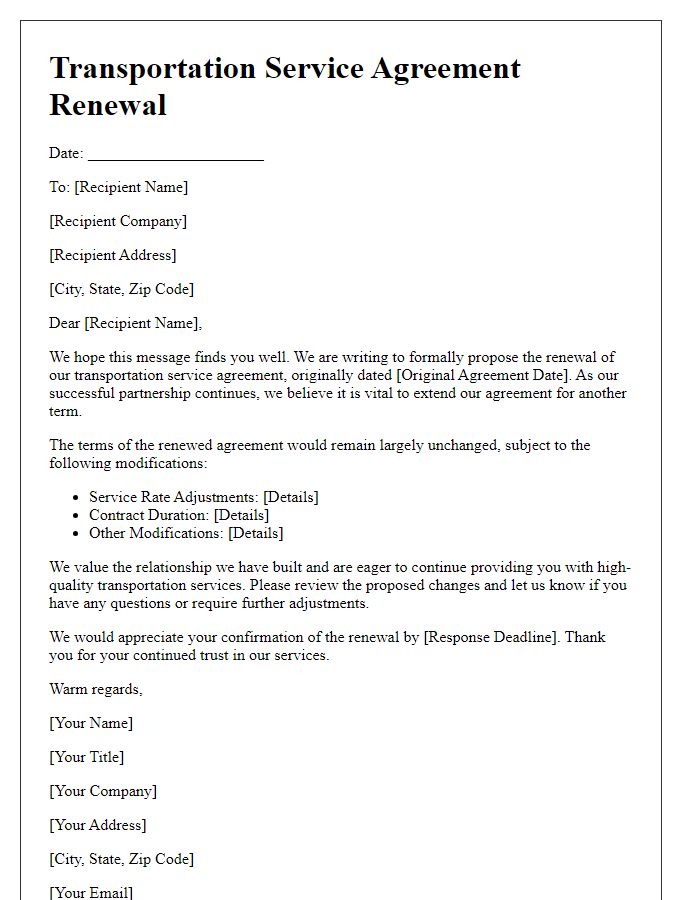
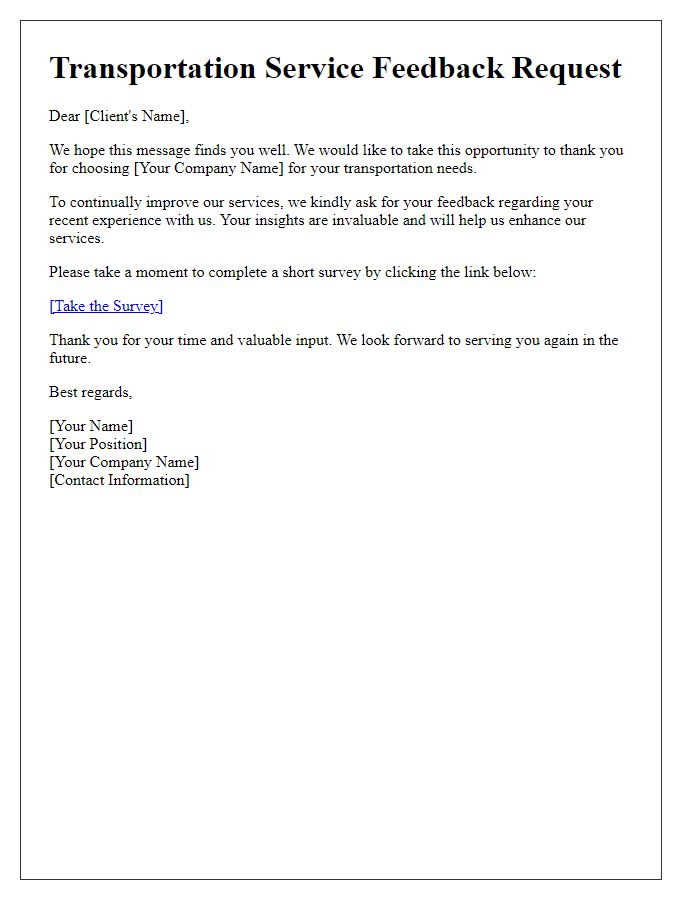

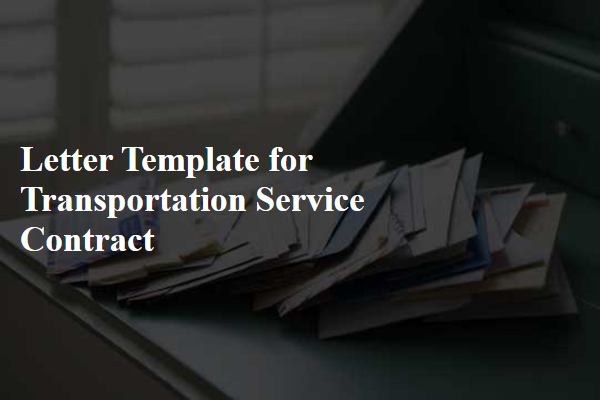
Comments